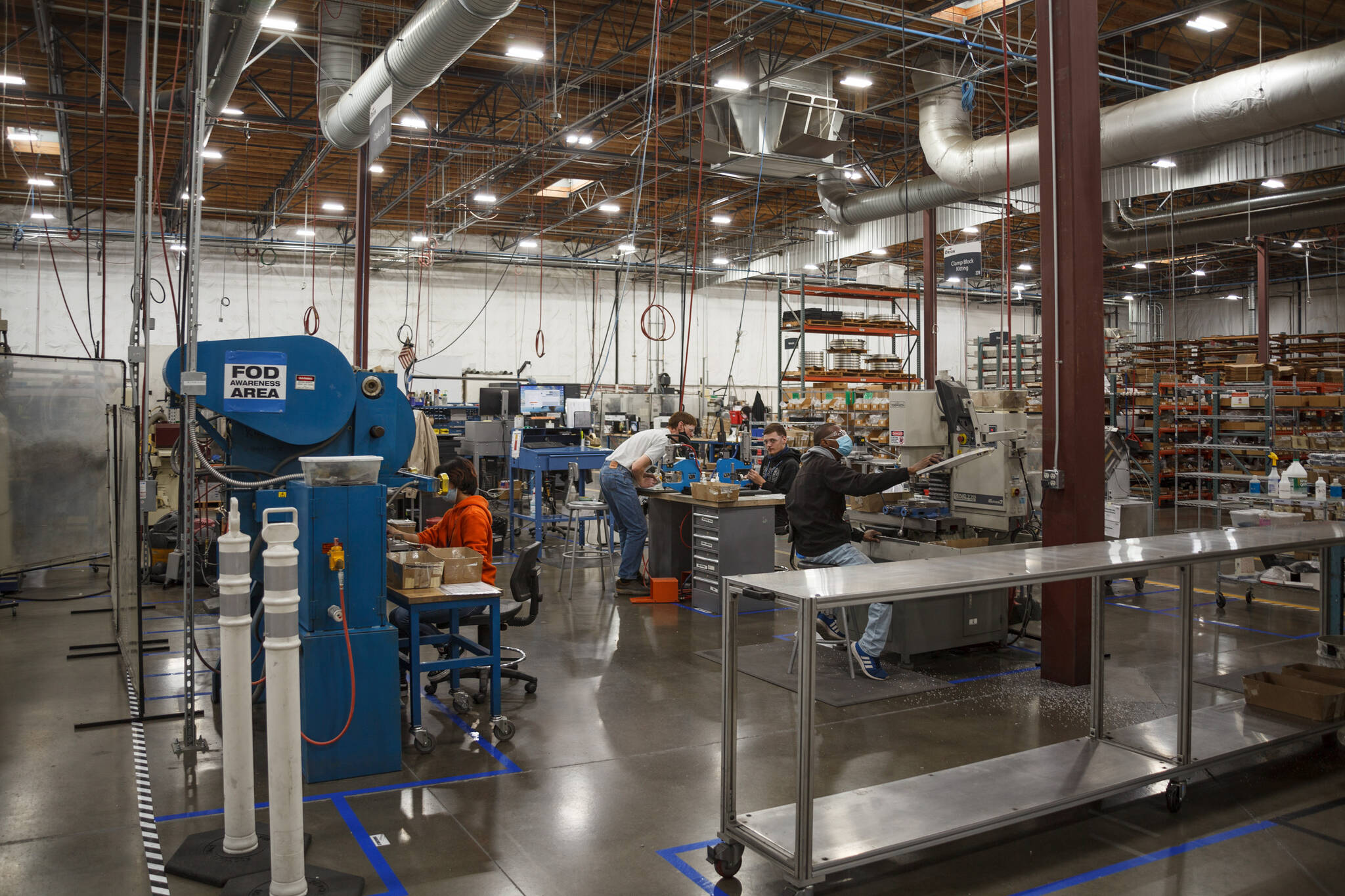Orion Industries is more than an aerospace manufacturing company in Auburn. It’s a social venture focused on helping people with barriers to success enter the workforce.
Every Monday and Thursday at 9 a.m., Orion offers tours of their facility in Auburn to anyone who’s interested in job training. They can apply on the spot and start working around a week later, said Diane Lyons, director of development.
Orion serves people who have barriers such as intellectual or physical disabilities, PTSD,homelessness or really anything that gets between a person and gainful employment, Lyons said.
“The whole point of what we do, because Orion is a social enterprise, is we run a manufacturing operation where we train people for jobs in that industry or similar industries,” Lyons said. “We also help them get the skills they need to become confident in their abilities.”
Located at 1590 A Street in Auburn, the building is divided into two main sections: aerospace manufacturing and training and education.
The front section of the first floor has office spaces for administration and vocational counselors. In the back is an enormous manufacturing warehouse where people are trained by mentors in areas like shipping, quality control and some manufacturing processes.
On the second floor of the building are classrooms with computer labs and lecture rooms where people can learn the skills necessary to get a job in clerical or customer service work, Lyons said.
The building itself was designed with the participants in mind. The building is located on the bus line so people without cars can easily get to and from the facility, Lyons said. The bathrooms have showers for people experiencing homelessness, and all of the seats in the classrooms face the doors to accommodate people with PTSD, Lyons said.
When someone enters the program, they’re assigned a vocational counselor who will help them identify areas of work they might be good at or interested in, Lyons said. This could be anything from customer service to manufacturing.
“There’s lots of different areas out there [the factory] where a person can learn different skills. Some of them are specific skills to manufacturing,” Lyons said. “But some of them are skills like multitasking or math, weighing and measuring, things that are really life skills and not specific to the manufacturing industry.”
The factory is made up of several departments staffed by employees and participants. Most of the actual machining and manufacturing is done by Orion employees and isn’t part of the training. However, the secondary processes like painting, packing and inventory are done by participants who are supervised by mentors, Lyons said.
If someone isn’t interested in manufacturing work, they can go upstairs and take classes on clerical and customer service work, Lyons said. There participants learn to use Microsoft suite and other skills necessary to work a job in that industry.
“We don’t just find people jobs in manufacturing. We really take into account what their skills are, what their aptitudes are and what they want to do,” Lyons said. “Our goal is always to find them jobs at least 20% above minimum wage.”
Orion has the capacity to train around 40 participants at any given time, but currently due to COVID-19, there are about 30 active participants, Lyons said. Because Orion is dedicated to meeting people where they’re at, there’s no set duration for the program, and people can basically take as long as they need before moving on to work somewhere else.
Over the past 11 years, Orion has supported 2,640 people in training programs, according to Orion. The average wage a person earns after completing Orion’s training program is $16.25 an hour, Lyons said.
Participants in the program work four days a week for minimum wage, Lyons said. Orion also helps its participants with things like transportation, housing and food, whatever they may need to be ready for work, Lyons said.
Once a person feels competent in their ability to hold a job one of Orion’s job developers will help them find a job that suits their skill set and needs, Lyons said. Orion has a 86% job placement rate for people leaving the program and an 84% retention rate after 90 days.
“They work with a job developer who tries to find them a job in the community that’s a good fit for their skills and aptitudes and desires,” Lyons said. “After they’ve been placed in that job the job developer works with them for at least 90 days afterwards to make sure it’s a good fit. Ultimately the goal is that they’ll retain their employment.”
In the future Orion hopes to partner with the Health Through Housing Clarion hotel which is just around the corner from Orion’s building in Auburn.
“If your goal is to get people permanently housed, one of those steps would be to find them employment, so we feel like we’d be a great fit for that in the long-term plan,” Lyons said. “We’re really hoping we can partner with them in some way.”
Orion is partially funded through charitable donations, if you would like to assist people in preparing for and attaining good jobs in the area you can make a tax-deductible donation.



